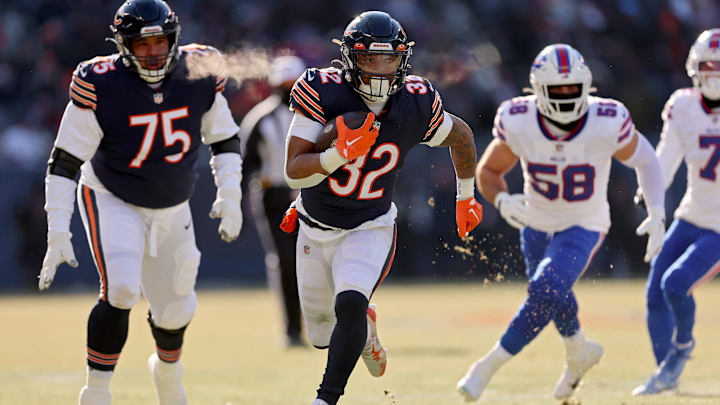
The NFL needs to find a way to improve running back salaries
You may not recall this, but Los Angeles Chargers running back, Austin Ekeler requested a trade this offseason. He was granted permission to seek one out, but nothing came to fruition. Ekeler is 28 and coming off an 18-touchdown season. The year prior he scored 20. He has touched the ball 587 times over that two-year span. Ekeler saw a second contract with the Chargers and agreed to a four-year deal worth only $24.5 million. That was a mistake on his part because he had a breakout campaign, but nothing compared to what he would become just another year later.
Well, Ekeler is just another example of a running back being vastly underpaid in the NFL. Miles Sanders ($6.3M), Austin Ekeler ($6.1M), David Montgomery ($6M) and Joe Mixon ($5.7M) are all earning less than these three wide receivers — two of which who have yet to produce anything worth noting with their new teams. I already mentioned Allen Lazard making $11 million per year, but Russell Gage is earning $10 million and Cedrick Wilson is earning $7.3 million. Do any of these three produce as much the running backs listed? Lazard's 2022 season might be the closest.
Now for the even crazier part. I keep picking on Allen Lazard, but he is not even a true WR2 in the Jets offense. Remember his $11 million per year? That makes him tied as the 28th-highest-paid wide receiver in the league this year. That is more than what Tony Pollard, Josh Jacobs and Saquon Barkley are set to make in 2023 on the league's franchise tag. A tag that makes them tied as the sixth-highest-paid running back. Think about that for a minute. The sixth-highest-paid running backs in the NFL are earning less than the 28th-highest-paid wide receivers. That's crazy.
Again, the owners are the real problem here, but the NFLPA didn't do players any favors either. Could we see a positional strike by running backs in the future? Will we see a watered-down product at the position as kids choose to play other positions because of the vast difference in salary? Maybe what the NFL can do is create a new rule that running backs' rookie contracts are only two to three years long with the franchise tag only extending them to four or five years max. This way they can hit the open market sooner, giving them more prime years to earn their just rewards.
To answer the question, the Chicago Bears are not the cause of the problem, but they sure are not helping resolve the problem either. This is an NFL problem and will need to be solved league-wide.
